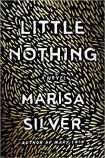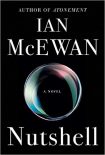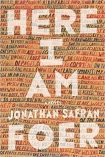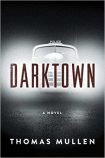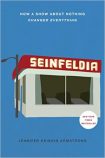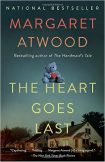In an unnamed country at the beginning of the last century, a child called Pavla is born to peasant parents. Her arrival, fervently anticipated and conceived in part by gypsy tonics and archaic prescriptions, stuns her parents and brings outrage and scorn from her community. Pavla has been born a dwarf, beautiful in face, but as the years pass, she grows no farther than the edge of her crib. When her parents turn to the treatments of a local charlatan, his terrifying cure opens the floodgates of persecution for Pavla. Little Nothing unfolds across a lifetime of unimaginable, magical transformation in and out of human form, as an outcast girl becomes a hunted woman whose ultimate survival depends on the most startling transfiguration of them all. Woven throughout is the journey of Danilo, the young man entranced by Pavla, obsessed only with protecting her. Part allegory about the shifting nature of being, part subversive fairy tale of love in all its uncanny guises, Little Nothing spans the beginning of a new century, the disintegration of ancient superstitions, and the adoption of industry and invention. With a cast of remarkable characters, a wholly original story, and extraordinary, page-turning prose, Marisa Silver delivers a novel of sheer electricity.
All posts by Emily Berg
Nutshell – Ian McEwan
Trudy has betrayed her husband, John. She’s still in the marital home—a dilapidated, priceless London townhouse—but John’s not there. Instead, she’s with his brother, the profoundly banal Claude, and the two of them have a plan. But there is a witness to their plot: the inquisitive, nine-month-old resident of Trudy’s womb.
Told from a perspective unlike any other, Nutshell is a classic tale of murder and deceit from one of the world’s master storytellers.
Here I Am – Jonathan Safran
In the book of Genesis, when God calls out, “Abraham!” before ordering him to sacrifice his son, Isaac, Abraham responds, “Here I am.” Later, when Isaac calls out, “My father!” before asking him why there is no animal to slaughter, Abraham responds, “Here I am.”
How do we fulfill our conflicting duties as father, husband, and son; wife and mother; child and adult? Jew and American? How can we claim our own identities when our lives are linked so closely to others’? These are the questions at the heart of Jonathan Safran Foer’s first novel in eleven years―a work of extraordinary scope and heartbreaking intimacy.
Unfolding over four tumultuous weeks in present-day Washington, D.C., Here I Amis the story of a fracturing family in a moment of crisis. As Jacob and Julia Bloch and their three sons are forced to confront the distances between the lives they think they want and the lives they are living, a catastrophic earthquake sets in motion a quickly escalating conflict in the Middle East. At stake is the meaning of home―and the fundamental question of how much aliveness one can bear.
Showcasing the same high-energy inventiveness, hilarious irreverence, and emotional urgency that readers loved in his earlier work, Here I Am is Foer’s most searching, hard-hitting, and grandly entertaining novel yet. It not only confirms Foer’s stature as a dazzling literary talent but reveals a novelist who has fully come into his own as one of our most important writers.
The Tea Planter’s Wife – Dinah Jefferies
#1 International bestselling novel set in 1920s Ceylon, about a young Englishwoman who marries a charming tea plantation owner and widower, only to discover he’s keeping terrible secrets about his past, including what happened to his first wife, that lead to devastating consequences
Darktown – Thomas Mullen
The award-winning author of The Last Town on Earth delivers a riveting and elegant police procedural set in 1948 Atlanta, exploring a murder, corrupt police, and strained race relations that feels ripped from today’s headlines.
Responding to orders from on high, the Atlanta Police Department is forced to hire its first black officers, including war veterans Lucius Boggs and Tommy Smith. The newly minted policemen are met with deep hostility by their white peers; they aren’t allowed to arrest white suspects, drive squad cars, or set foot in the police headquarters.
When a black woman who was last seen in a car driven by a white man turns up dead, Boggs and Smith suspect white cops are behind it. Their investigation sets them up against a brutal cop, Dunlow, who has long run the neighborhood as his own, and his partner, Rakestraw, a young progressive who may or may not be willing to make allies across color lines. Among shady moonshiners, duplicitous madams, crooked lawmen, and the constant restrictions of Jim Crow, Boggs and Smith will risk their new jobs, and their lives, while navigating a dangerous world—a world on the cusp of great change.
Set in the postwar, pre-civil rights South, and evoking the socially resonant and morally complex crime novels of Dennis Lehane and Walter Mosley, Darktown is a vivid, smart, intricately plotted crime saga that explores the timely issues of race, law enforcement, and the uneven scales of justice.
Shakespeare in Swahililand: In Search of a Global Poet – Edward Wilson-Lee
Shakespeare in Swahililand tells the unexpected literary history of Shakespeare’s influence in East Africa. Beginning with Victorian-era expeditions in which Shakespeare’s works were the sole reading material carried into the interior, the Bard has been a vital touchstone throughout the region. His plays were printed by liberated slaves as one of the first texts in Swahili, performed by Indian laborers while they built the Uganda railroad, used to argue for native rights, and translated by intellectuals, revolutionaries, and independence leaders.
Weaving together stories of explorers staggering through Africa’s interior, eccentrics living out their dreams on the savanna, decadent émigrés, Cold War intrigues, and even Che Guevara, Edward Wilson-Lee–a Cambridge lecturer raised in Kenya–tallies Shakespeare’s influence in Zanzibar, Kenya, Tanzania, Uganda, Ethiopia, and Sudan. Traveling through these countries, he speaks with everyone from theater directors and academics to soldiers and aid workers, discovering not only cultural dimensions traceable to Shakespeare’s plays but also an overwhelming insistence that these works provide a key insight into the region.
An astonishing work of empathy and historical vision, Shakespeare in Swahililand gets at the heart of what makes Shakespeare so universal and the role that his writings have played in thinking about what it means to be human.
Seinfeldia – Jennifer Keishin Armstrong
The hilarious behind-the-scenes story of two guys who went out for coffee and dreamed up Seinfeld—the cultural sensation that changed television and bled into the real world, altering the lives of everyone it touched.
Comedians Larry David and Jerry Seinfeld never thought anyone would watch their silly little sitcom about a New York comedian sitting around talking to his friends. NBC executives didn’t think anyone would watch either, but they bought it anyway, hiding it away in the TV dead zone of summer. But against all odds, viewers began to watch, first a few and then many, until nine years later nearly forty million Americans were tuning in weekly.
In Seinfeldia, acclaimed TV historian and entertainment writer Jennifer Keishin Armstrong celebrates the creators and fans of this American television phenomenon, bringing readers behind-the-scenes of the show while it was on the air and into the world of devotees for whom it never stopped being relevant, a world where the Soup Nazi still spends his days saying “No soup for you!”, Joe Davola gets questioned every day about his sanity, Kenny Kramer makes his living giving tours of New York sights from the show, and fans dress up in Jerry’s famous puffy shirt, dance like Elaine, and imagine plotlines for Seinfeld if it were still on TV.
Loner – Teddy Wayne
David Federman has never felt appreciated. An academically gifted yet painfully forgettable member of his New Jersey high school class, the withdrawn, mild-mannered freshman arrives at Harvard fully expecting to be embraced by a new tribe of high-achieving peers. Initially, however, his social prospects seem unlikely to change, sentencing him to a lifetime of anonymity.
Then he meets Veronica Morgan Wells. Struck by her beauty, wit, and sophisticated Manhattan upbringing, David becomes instantly infatuated. Determined to win her attention and an invite into her glamorous world, he begins compromising his moral standards for this one, great shot at happiness. But both Veronica and David, it turns out, are not exactly as they seem.
Loner turns the traditional campus novel on its head as it explores ambition, class, and gender politics. It is a stunning and timely literary achievement from one of the rising stars of American fiction.
Reckless: My Life as a Pretender – Chrissie Hynde
Chrissie Hynde, leader of the Pretenders, is one of the most widely imitated figures in rock: sexy, unflappable, vulnerable yet tough, a groundbreaking songwriter and performer. In these pages, Chrissie gives us her story. We see her all-American 1950s childhood in Ohio, and her teenage self falling for the rock music of the 1960s. We follow her to London, where she takes a job with NME and makes her way into the churning ’70s London punk scene, meeting Lemmy, Sid Vicious and Iggy Pop, living in squats, writing songs, playing in early versions of the Clash and the Damned. Her work with the Pretenders—which melded punk, New Wave, and pop to irresistible effect—would catapult her to instant stardom. Through it all is Chrissie’s unmistakable voice, ringing with fearless emotional honesty, a razor-sharp wit, and an enduring belief in the power of rock’n’roll.
The Heart Goes Last – Margaret Atwood
Stan and Charmaine, a young urban couple, have been hit by job loss and bankruptcy in the midst of a nationwide economic collapse. Forced to live in their third-hand Honda, where they are vulnerable to roving gangs, they think the gated community of Consilience may be the answer to their prayers. If they sign a life contract, they’ll get a job and a lovely house . . . for six months out of the year. On alternating months, residents must leave their homes and serve as inmates in the Positron prison system. At first, this seems worth it: they will have a roof over their heads and food on the table. But when a series of troubling events unfolds, Positron begins to look less like a prayer answered and more like a chilling prophecy fulfilled. The Heart Goes Last is a vivid, urgent vision of development and decay, freedom and surveillance, struggle and hope—and the timeless workings of the human heart.

